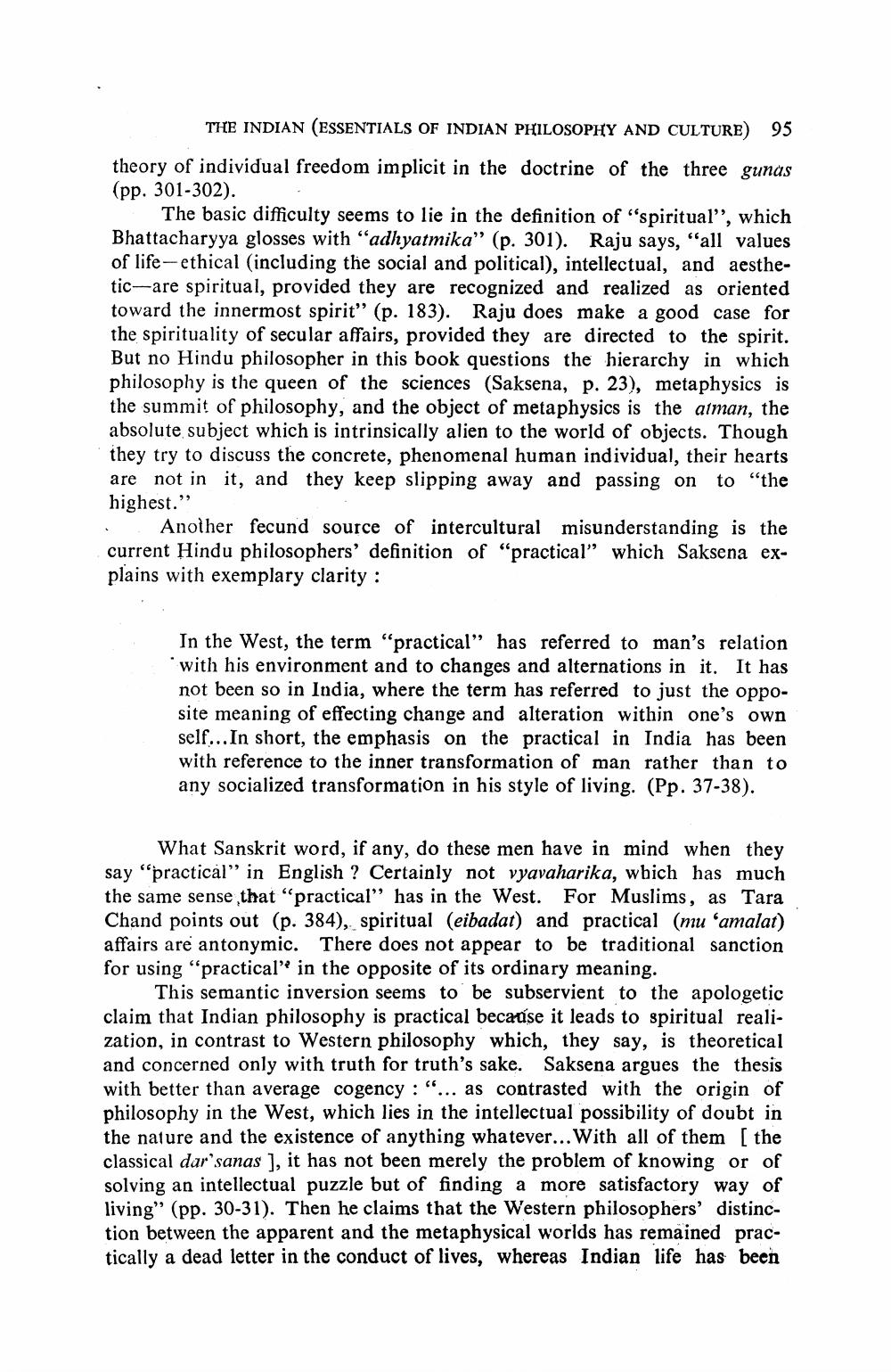________________
THE INDIAN (ESSENTIALS OF INDIAN PHILOSOPHY AND CULTURE) 95 theory of individual freedom implicit in the doctrine of the three gunas (pp. 301-302).
The basic difficulty seems to lie in the definition of "spiritual", which Bhattacharyya glosses with "adhyatmika" (p. 301). Raju says, "all values of life-ethical (including the social and political), intellectual, and aesthetic-are spiritual, provided they are recognized and realized as oriented toward the innermost spirit" (p. 183). Raju does make a good case for the spirituality of secular affairs, provided they are directed to the spirit. But no Hindu philosopher in this book questions the hierarchy in which philosophy is the queen of the sciences (Saksena, p. 23), metaphysics is the summit of philosophy, and the object of metaphysics is the atman, the absolute subject which is intrinsically alien to the world of objects. Though they try to discuss the concrete, phenomenal human individual, their hearts are not in it, and they keep slipping away and passing on to "the highest."
Another fecund source of intercultural misunderstanding is the current Hindu philosophers' definition of "practical" which Saksena explains with exemplary clarity:
In the West, the term "practical" has referred to man's relation I with his environment and to changes and alternations in it. It has not been so in India, where the term has referred to just the opposite meaning of effecting change and alteration within one's own self... In short, the emphasis on the practical in India has been with reference to the inner transformation of man rather than to any socialized transformation in his style of living. (Pp. 37-38).
What Sanskrit word, if any, do these men have in mind when they say "practical" in English? Certainly not vyavaharika, which has much the same sense that "practical" has in the West. For Muslims, as Tara Chand points out (p. 384), spiritual (eibadat) and practical (mu 'amalat) affairs are antonymic. There does not appear to be traditional sanction for using "practical" in the opposite of its ordinary meaning.
This semantic inversion seems to be subservient to the apologetic claim that Indian philosophy is practical because it leads to spiritual realization, in contrast to Western philosophy which, they say, is theoretical and concerned only with truth for truth's sake. Saksena argues the thesis with better than average cogency: "... as contrasted with the origin of philosophy in the West, which lies in the intellectual possibility of doubt in the nature and the existence of anything whatever... With all of them [the classical dar sanas ], it has not been merely the problem of knowing or of solving an intellectual puzzle but of finding a more satisfactory way of living" (pp. 30-31). Then he claims that the Western philosophers' distinction between the apparent and the metaphysical worlds has remained practically a dead letter in the conduct of lives, whereas Indian life has been




